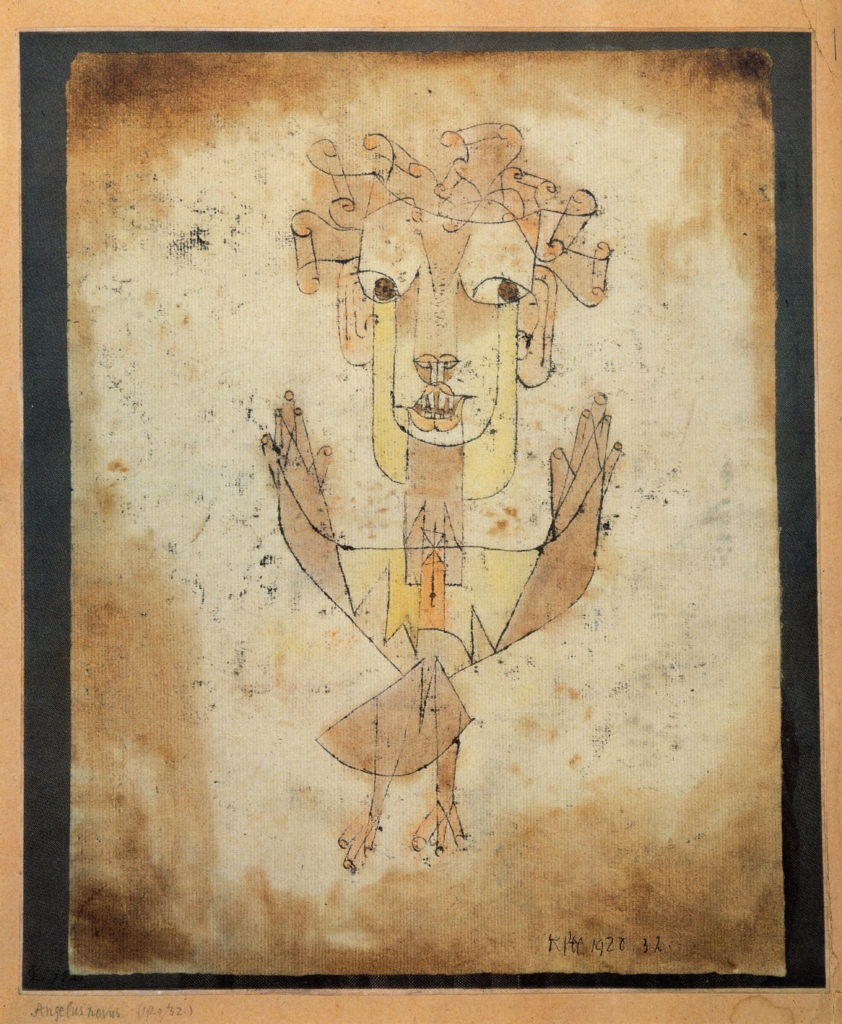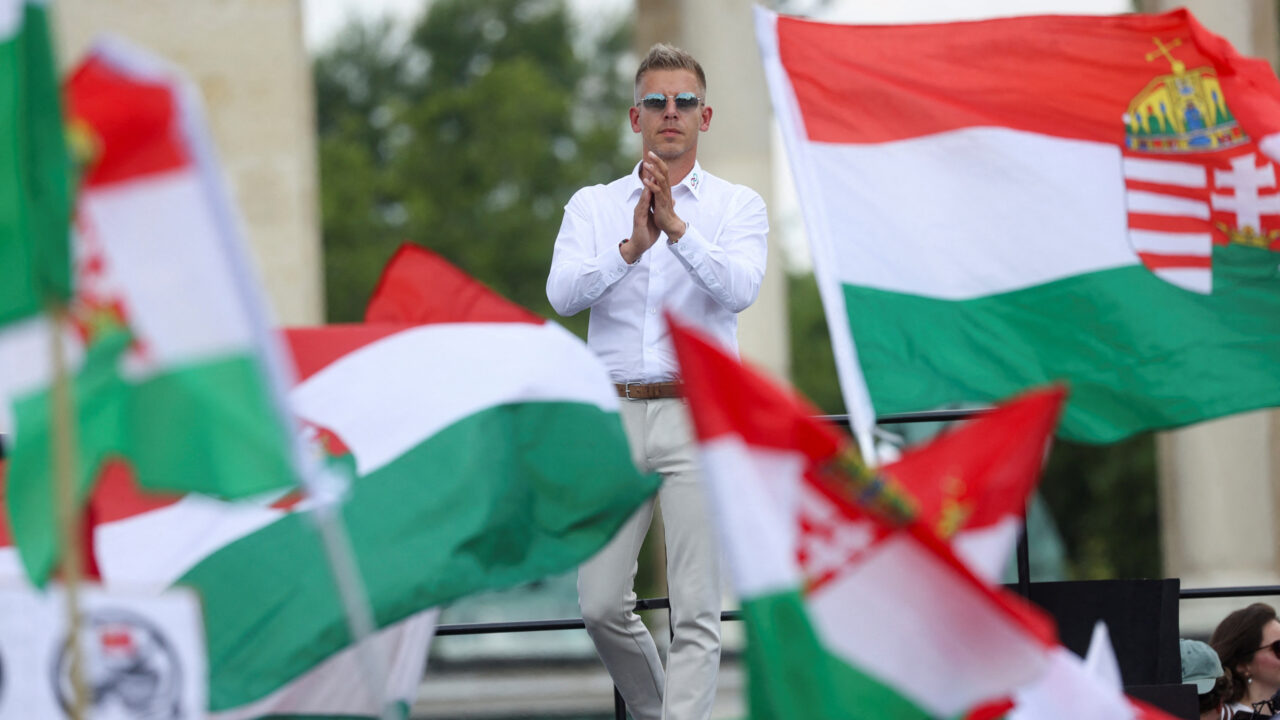A star in the storm: The rise of Peter Magyar
There is a new kid on the block in Budapest, but it remains to be seen whether Peter Magyar can break 14 years of Orban rule
This week, Hungary took over the reigns from Belgium to begin its six-month presidency of the Council of the European Union, despite concerns in Brussels and across EU capitals. With its unsubtle slogan of “Make Europe Great Again”, the EU’s problem child appears ready to rock the bureaucratic boat. But back in Budapest, another political upset is stirring. Despite prime minister Viktor Orban’s party Fidesz’s still confident win in the European Parliament election, it was their worst result to date. A new challenger had emerged, gaining 30 per cent of the vote, closing in on them like never before.
Over the past five months, Peter Magyar has skyrocketed in the otherwise stagnant Hungarian political scene. With his hastily founded party, he got the votes of over 1.3 million Hungarians in the election by basically running a one-man show. This is particularly surprising as Magyar didn’t come from the ranks of fierce opponents of the system. He is the ex-husband of Orban’s former justice minister and the EPP’s list leader Judit Varga, and himself has vigorously represented Orban’s politics in Brussels for years. His rhetoric in the beginning of the campaign often mirrored Orban’s, with terms like the “Soros plan” and “Brussels bureaucracy” flowing just as fluently from his lips.
Magyar is not the product of a meticulously crafted strategy. Rather, the loud success of his media appearances motivated him to stand against corruption and poverty. As a conservative right-winger, the “slim fit Jesus” attacked both Orban and the old opposition – a strategy that proved successful. However, there is still little known about the true content of the Magyar phenomenon and his positions on the EU and major domestic and international issues. This uncertainty is well illustrated by his vacillations regarding his own mandate – despite repeatedly stating during the campaign that he would not take up a seat in the European parliament, he accepted it after the election. His rhetoric on the EU became increasingly refined, eventually reaching an East-West dichotomy where Orban leads Hungary towards the East while he would lead it West. We can reasonably expect that his rhetoric will continue to diverge from Orban’s due to the logic of political competition. Signs of this are already evident: for instance, he immediately joined the centre-right EPP after the election, from which Fidesz had left a few years prior. In the future, he may well follow the playbook of Polish prime minister Donald Tusk by promising to unblock frozen EU funding through improved relations with Brussels.
At this stage, however, it would be unfair to expect Peter Magyar to have well-developed policies and a mature ideology, not to mention an organised structure. He selected his list of European parliamentary representatives based on the results of a Facebook ad by letting users vote on the order. It is unpredictable where this one-man show will lead, how successful Magyar will be in building an organisation, and how far he will go in the national election two years from now.
Currently, Magyar poses a greater problem for the traditional opposition parties than for Orban. In the European Parliament election, the left-wing party alliance managed to secure 8 per cent and two seats, but the liberals, the greens, and the traditional protest party, the Two-tailed Dog, did not win any mandates, contrary to expectations. Similar results were seen for numerous small conservative initiatives. Magyar has currently vacuumed up the votes of the opposition parties, with about 65-70 per cent of his voters coming from former voters of the opposition, 20-25 per cent from former non-voters, and some 10 per cent defecting from Fidesz. And with this, the peculiar situation has arisen where Magyar, who espouses a somewhat soft Fidesz-like right-wing political line, has attracted mostly left-leaning voters. Even so, the election result is a significant achievement, although it’s clear that the hardest part is yet to come – winning a national election against Fidesz’s total media and resource dominance, as well as gerrymandered constituencies, will be much tougher.
However, there is one factor that gives hope to Magyar’s supporters and causes Orban unease – Magyar’s surprise emergence. In retrospect, though, from a socio-psychological perspective, a messiah expectation was in the air. Opposition voters, battered after four elections, have experienced how various opposition coalitions repeatedly lead to Orban’s two-thirds majority. This has understandably disappointment grown and led to a sense of total hopelessness – Orban’s rule can be compared to the seemingly endless Brezhnev era.
Walter Benjamin’s beautiful metaphor about Paul Klee’s “Angelus Novus” painting comes to mind here, depicting an angel facing forward but propelled ahead by the storm of history, with its wings spread wide. The phenomenon of Peter Magyar suddenly appeared on the political scene just as unexpectedly and powerfully as the angel encounters the stormy force of history. Like the angel is driven forward by the force of history, Peter Magyar is propelled by political events and the deep-seated feelings of Hungarian society. The disillusionment and disenchantment of voters fill his sails as he navigates towards the uncertainties and challenges of the future.

Angelus Novus, 1920. Found in the collection of Israel Museum, Jerusalem. | picture alliance / Heritage Images | Fine Art Images
In the painting, the angel appears poised to depart from something it is intently observing, with wide eyes, an open mouth, and outstretched wings. This angel wishes to pause, to resurrect the fallen and mend the shattered. However, a storm from paradise has ensnared its wings, propelling it with such force that it cannot fold them. This storm drives the angel inexorably into the future while the ruins before it rise ever higher.
Peter Magyar has been thrust into the political scene by the storm of societal discontent and historical momentum
Similarly, Peter Magyar has been thrust into the political scene by the storm of societal discontent and historical momentum. His emergence is not the result of a calculated strategy but a reaction to the accumulated grievances of the Hungarian electorate. Like the angel, Magyar faces the past failures and ongoing challenges, driven forward by a force beyond his control: public frustration and the demand for change. As he navigates through the debris of political disillusionment, the future remains uncertain.
What is certain is that the era of Fidesz’s one-sided dominance in Hungarian politics is nearing its end. The upcoming period promises to be interesting. Among these, perhaps the most crucial is how the relationship between media narratives and the messianic expectations on Magyar will evolve. As Magyar’s closest supporters describe him, he is not a politician but a rock star. Indeed, if we consider the emotional attachment and fanbase – this holds true and is a notable achievement. However, while we observe the successes against Orban’s propaganda machine, we must not forget that the most crucial part of Fidesz’s power apparatus is its network of personal connections and control. In rural areas, towns, and villages, this network knows precisely who the dissenters are and will limit their access to the state resources flowing through official channels. Whether Magyar can break this “surveillance illiberalism” largely depends on his ability to build a political organisation outside Budapest. The future will tell if this rock star can step onto the stage as a true political artist and play a melody that captures the majority of Hungarians.
The European Council on Foreign Relations does not take collective positions. ECFR publications only represent the views of their individual authors.



